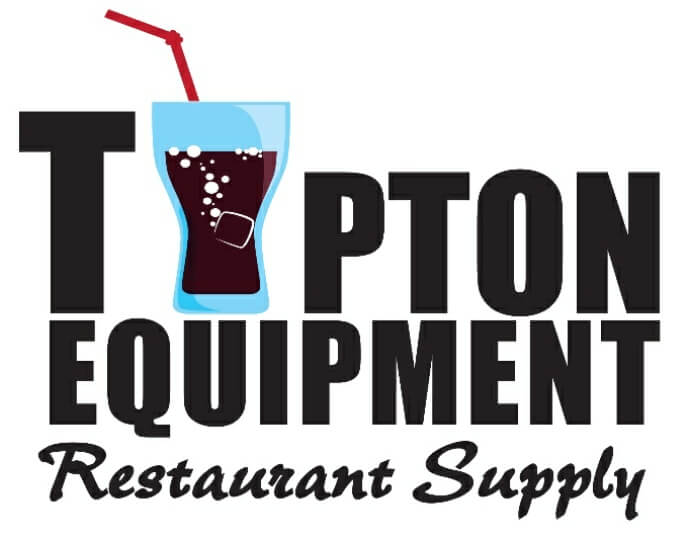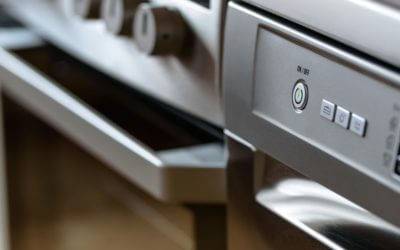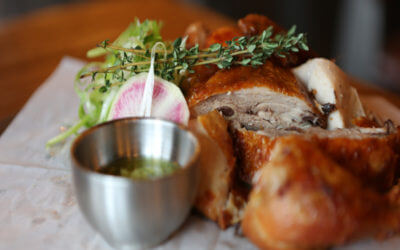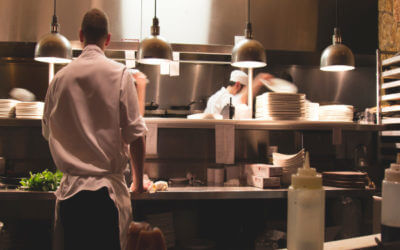3 Tips to Maintaining Your Commercial Kitchen
July 22, 2019Using a cleaning checklist for your commercial kitchen keeps your facility in top shape and helps employees follow a consistent cleaning schedule. Without this, essential tasks are easily missed, which could cost you when a local health inspector visits your business.
Starting Off Right
If there’s anything involving the commercial kitchen equipment that you don’t fully understand, refer to the appliance’s owner’s manual or look online for information, guidance, tips, and e-manuals.
Always train employees who will be using the equipment to know and use the best methods, safest procedures, and cleaning habits for each appliance.
One thing that’s not just good for maintenance but also required for health codes is a clean and tidy kitchen. Daily cleaning of all appliances should be constant.
Nowadays, many appliances are stainless steel. Be sure to follow some easy but effective steps to clean stainless steel.
Schedule regular maintenance appointments with a professional to keep your commercial kitchen equipment running well and to catch problems early.
Look Down
Most people don’t think of their kitchen floor as part of their equipment, but it is the equipment that gets more regular use than any other part of your commercial kitchen. Improper floor care can contribute to a slip and fall that can bring your commercial kitchen’s productivity to a halt, leave you short staffed, and cut into your bottom line.
Floors should be cleaned routinely with a quality cleaner designed for commercial kitchen floors. The National Floor Safety Institute (NFSI) offers a list of tested and certified floor cleaning products at NFSI.org. It is crucial to scrub the floors vigorously with a deck brush as part of your daily floor-cleaning routine. Rubber mats and non-slip kitchen shoes will also help improve traction.
Garbage
The way you treat kitchen garbage can affect your business and the environment. By throwing out old food, your dumpster can attract pests and vermin like rats, mice, and flies. Keeping your trash and recycling areas neat and tidy is essential. Make sure that every container has a lid that closes. Limiting your waste may be beneficial to invest in a composting initiative, which breaks down food and organic scraps. Making the shift can reduce costs and environmental impact— at the same time.
Keep your commercial kitchen maintained and running smoothly!
What’s in a Cooking Pot, How to Choose the Right One?
As a restaurant owner, your cooking needs might vary. Did you know that a good quality pot can greatly improve your cooking experience, while also improving the quality of your cooking? This cooking equipment is a very important one that cannot be done away with...
5 Things Every Restaurant Owner Should Do Before Buying Used Kitchen Equipment
Equipping your restaurant properly can cost a lot of money, so buying used kitchen equipment is the go-to choice for many restaurateurs. Buying used kitchen equipment for a restaurant is a bit different than buying used equipment for your home, however. You will...
Top Restaurant Technology Trends in 2018
When looking to buy restaurant supplies, you want to be on the leading edge of technology trends. This will keep your kitchen running smoothly. Let’s take a look at some of the most recent trends in restaurant supplies technology. 1. New Payment Options Who would...
5 Different Ice Shapes and Why You Should Care About Them
Ice makers are very popular in the restaurant and foodservice community because they eliminate the need to buy ice every day. And of course, adding an ice maker to your collection of foodservice equipment means you will always have ice on hand when you need it. An...
Pulping and Grinding: A Starter’s Guide to Reducing Commercial Food Waste Costs
For most restaurant owners and managers, the expenses involved in making meals are always under careful consideration. Water is needed to prepare, cook and wash food; power is necessary for food prep, cooking and cooling, and so on. However, how many of us consider...
Choosing the Right Milk Cooler: Cold Wall or Forced Air?
In a restaurant, milk is an essential to have on hand for coffee and other café-style beverages, for serving with kids’ meals, and as a key ingredient in many recipes. Keeping your milk properly chilled can be difficult without the proper restaurant equipment....
How to Choose Your Next Commercial Meat Smoker
The movies that connect with us on a personal level are the ones that linger in our memories forever. Anyone who has used a commercial meat smoker knows that they have a huge influence on the taste of a meal. You need to have just the right kitchen equipment to get a...
Are High Speed Ovens Too Good to be True?
You might have heard a few of the bold claims that foodservice equipment manufacturers have been making about high speed ovens, but they can’t be possible, right? Cooking three times as faster as regular ovens? Five times as fast? Fifteen times as fast? It may seem...
Choosing the Right Food Storage Containers for Your Restaurant
Choosing the right kitchen supplies will make a difference in your restaurant. Whether it is heavy duty kitchen equipment or food storage containers, each piece of equipment plays its own important role. Today, we are going to talk about how to choose the right food...
Tipton’s Guide to Perfect Poultry Trussing
Do you ever truss birds in your commercial kitchen? Trussing is a fantastic cooking technique because it makes poultry cook faster, look more attractive and taste better. If your commercial kitchen prepares poultry, you don’t want to miss these trussing tips. Trussing...
How to Eliminate Excess Condensation in Your Kitchen
Is your commercial kitchen getting steamy? If so, you could have more than just an uncomfortable working environment on your hands. Excess moisture in your commercial kitchen can result in the corrosion of equipment, the development of mold, and even damage to your...
The DIY Guide to Your Restaurant’s Own Garden
Stocking your restaurant supply with your own home-grown herbs and produce can truly bring your dishes to life. When it comes to food, everyone knows there’s nothing like homemade and home-grown. Having your own culinary garden, however large or small, can help you...
5 Reasons a Meat Grinder Will Set Your Burgers Apart
The more you do to prepare your foods in-house with the right kitchen equipment, the fresher and more flavorful your dishes become. There are all sorts of restaurants offering fast-food style burgers, but some diners are looking for the real deal. A fresh, juicy...
Pest Preventions to Implement in Your Commercial Kitchen
Restaurant pests: it’s something that few people want to think about. Like it or not, pest management is an essential consideration for every commercial kitchen. Offering food, shelter and water, the unprepared commercial kitchen naturally provides everything pests...
Choosing the Right Material for Your Cooking Equipment
Kitchens are very unique to their chef. Just like a car mechanic has a toolbox unique to them, so is the cooking equipment in a kitchen. And over time, the same cooking equipment become a natural extension of the chef. What tools are you using in your kitchen? It...















